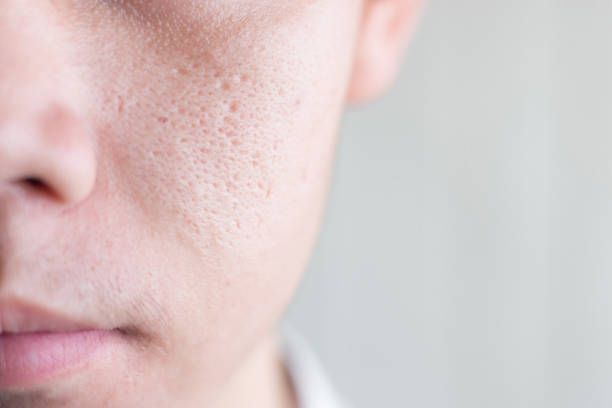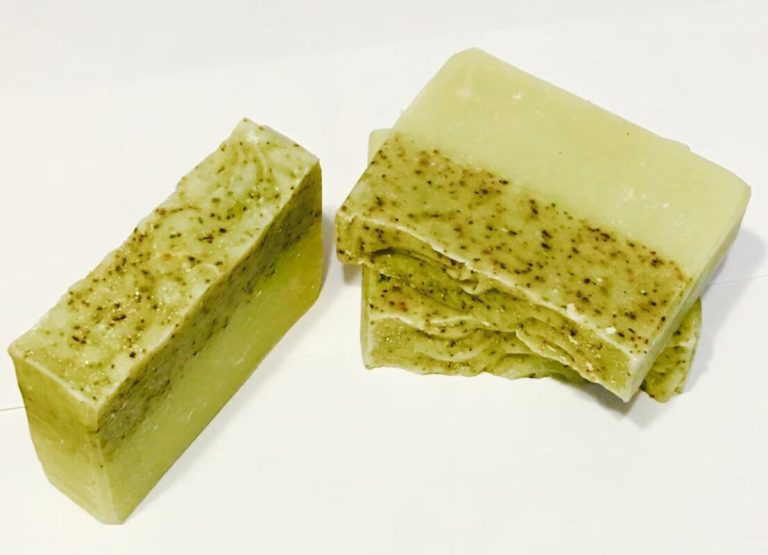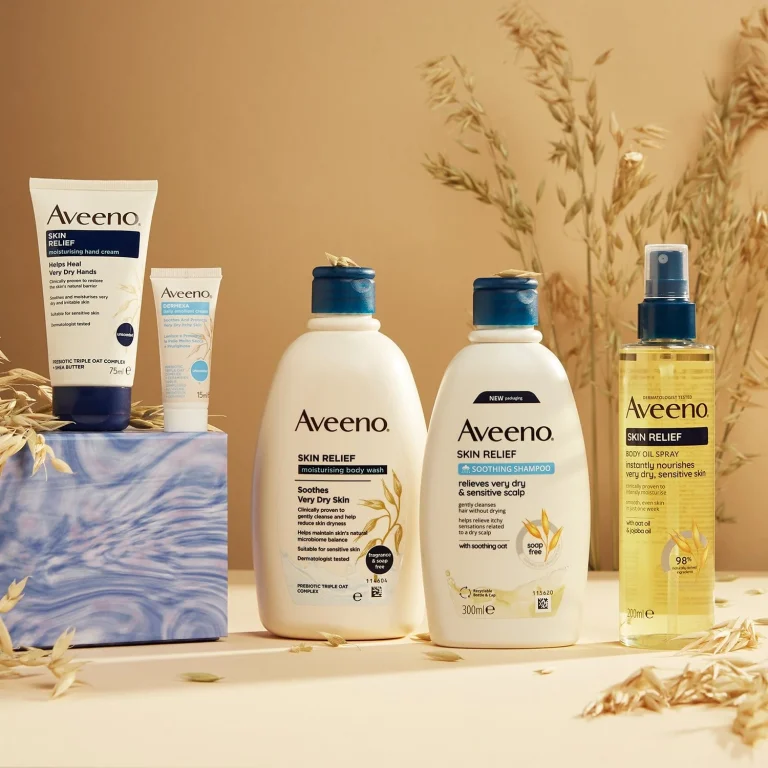Why Does My Moisturizer Burn My Skin?
Moisturizer is an essential part of any skincare routine. It helps replenish hydration, strengthen the skin barrier, and keep skin smooth and supple. However, many people experience an unpleasant burning or stinging sensation after applying moisturizer.
If your daily moisturizer is causing a burning feeling on your face, it’s important to find out why and what you can do about it.
What Causes Moisturizers to Burn Skin?
Contents
- What Causes Moisturizers to Burn Skin?
- Is Moisturizer Supposed to Burn?
- What to Do If Your Moisturizer Burns
- Why Does Moisturizer Burn After I Shave?
- Why Does Every Moisturizer Burn My Face?
- Why Is My Moisturizer Suddenly Burning My Face?
- Should You Stop Using a Moisturizer if It Burns?
- How to Tell If Your Skin Is Irritated by Moisturizer
- How Should Skin Feel After Moisturizing?
- What to Use If Your Facial Moisturizer Burns
- Moisturizer FAQs
- Why Does Moisturizer Burn Wrap Up
There are several potential causes for a burning sensation from your facial moisturizer. Understanding the root of the problem is key to finding the right solution.
Damaged Moisture Barrier
One of the most common reasons moisturizer burns is that you have a compromised moisture barrier. The moisture barrier is the top layer of your skin that prevents moisture loss. It keeps hydration in and irritants out. Over-exfoliation, harsh ingredients, weather, and certain medications can disrupt this protective barrier. Signs your moisture barrier is damaged include:
- Tight, dry, flaky skin
- Increased sensitivity
- Stinging when products are applied
- Accelerated signs of aging
To repair your moisture barrier, avoid products with harsh surfactants and fragrances. Focus on gentle cleansers, ceramide serums, and thick occlusive moisturizers. This helps hydrate and strengthen the barrier.
Skin Irritation and Dryness
Very dry and irritated skin is more prone to stinging and burning from moisturizers. The drier your skin, the more easily disturbed the nerves in the skin are. Always check the ingredients in your moisturizer for potential irritants. Common culprits include fragrance, botanical extracts, and alpha hydroxy acids.
Look for a fragrance-free moisturizer formulated for sensitive skin. Ingredients like colloidal oatmeal, aloe vera, and ceramides soothe irritation. Stay well hydrated and use a humidifier to prevent excessive dryness.
Sensitive Skin
If you have very sensitive skin, many products can trigger irritation and discomfort. Sensitive skin has a delicate lipid barrier that is easily disrupted. Always opt for moisturizers designed specifically for sensitive skin. Avoid heavy creams or products with artificial fragrances and dyes. Mineral oil, shea butter, and squalane are gentle moisturizing ingredients.
Allergic Reaction
An allergic reaction to one of the moisturizer’s ingredients can occasionally cause a burning sensation. Common allergens include lanolin, parabens, formaldehyde releasers, and botanical extracts. If the stinging is localized, evaluated the product label. Eliminate any products containing ingredients you suspect you may be allergic to.
See an allergist if the reaction is severe. They can help identify the allergen through patch testing. This ensures you avoid that ingredient in the future.
Overexfoliation
Using too many exfoliating acids or scrubs can damage the skin’s protective barrier. This leaves skin raw and overly sensitized. Signs of overexfoliation include extreme dryness, flaking, redness, and a stinging or burning sensation.
Discontinue exfoliating products immediately if your skin feels irritated. Stick to a gentle cleanser and fragrance-free moisturizer until skin heals. Always slowly introduce acids like glycolic or salicylic, starting with just a couple times a week.
Irritating Ingredients
Some ingredients commonly found in skincare products are known irritants for many people. Fragrance or perfumes, SD alcohol, menthol, peppermint, eucalyptus, and cinnamon extracts can all cause redness and stinging. If your moisturizer contains any potentially sensitizing ingredients, try switching to a fragrance-free, gentle formula.

Is Moisturizer Supposed to Burn?
There is a common misconception that tingling or burning means a product is working. However, skin should never sting when applying moisturizer. While acids and retinoids cause a mild warming sensation upon application, moisturizers should not burn. If they do, it means one of the following problems:
- The product is too harsh for your skin type
- An allergic reaction or irritation
- Your moisture barrier is compromised
Do not ignore burning as a normal side effect. A soothing moisturizer is vital for healthy skin. Never feel like discomfort is necessary in order to achieve results.
What to Do If Your Moisturizer Burns
If your moisturizer consistently stings or burns your skin, take these steps:
Stop using the offending product immediately. Continued use will only irritate skin further. Do not try to “push through” the discomfort.
Focus on repairing your moisture barrier. Cleanse gently, avoid exfoliation, and use a simple fragrance-free moisturizer. Ceramides, cholesterol, shea butter and oils help strengthen your barrier.
Avoid common irritants. Stay away from products with synthetic fragrance, botanical extracts, menthol, and essential oils. Stick to minimal, fragrance-free products until skin heals.
Give exfoliating ingredients a break. If you’ve been using daily acids or scrubs, irritation may be a sign to take a break. Harsh exfoliation can disrupt your moisture barrier.
Read evaluations carefully. See if other users with sensitive skin have experienced problems with burning or stinging from the product. Opt for mild formulas.
See a dermatologist if problems persist. A dermatologist can help diagnose any underlying skin conditions, allergies, or reactivity contributing to your sensitivity.
Why Does Moisturizer Burn After I Shave?
It’s common to experience burning, stinging, or tingling from moisturizer immediately after shaving. This happens because shaving exfoliates and strips away the top layer of skin. This exposes delicate new skin underneath, making it more prone to irritation.
Here are some tips to prevent post-shave burning:
- Always shave clean, dry skin to minimize irritation.
- Use a sharp, high quality razor to reduce friction.
- Shave in the direction of hair growth, not against.
- Rinse skin with cool water after shaving.
- Avoid products with alcohol, fragrance, menthol.
- Look for “after-shave” balms designed to soothe.
- Wait 10-15 minutes after shaving before applying moisturizer.
- Gently pat moisturizer into skin instead of rubbing.
Why Does Every Moisturizer Burn My Face?
If every moisturizer you try stings or burns your face, there are a few possible causes:
Sensitive Skin Conditions: Eczema, dermatitis, psoriasis and rosacea can all make skin more prone to irritation from products. See a dermatologist to diagnose and treat the underlying condition.
Damaged Moisture Barrier: Frequent use of foaming cleansers, exfoliants, and drying acne medications compromises the skin’s barrier. Avoid harsh products and focus on hydration.
Allergic Reaction: You may be allergic to common moisturizer ingredients like lanolin, phenoxyethanol, parabens, or botanical extracts. Identify the allergen and avoid it.
Medical Treatments: Ingredients like benzoyl peroxide and retinoids prescribed for acne can leave skin very irritated and dry. Talk to your dermatologist about managing discomfort.
Environmental Factors: Cold, dry climates; and excessive washing can disrupt the skin barrier and leave skin prone to burning. Humidify skin and avoid harsh cleansers.
Not Reading Labels: Make sure to check labels for sensitizing ingredients like added fragrance and botanical extracts. Opt for fragrance-free, minimal formulas.
Why Is My Moisturizer Suddenly Burning My Face?
A moisturizer you’ve used without problems for a while can suddenly start to burn for a few reasons:
- Your skin’s moisture barrier has been compromised by changes in weather, travel, new medications, or increased exfoliant use. Avoid irritants and focus on moisturizing.
- The product has changed its formula. Check recent evaluations to see if other users are now experiencing stinging with the product. Discontinue use.
- You’ve developed a new allergy. Even after years of use, you can develop an allergy to an ingredient in the moisturizer. See an allergist for patch testing.
- Your skin condition has changed. Issues like eczema or rosacea can flare up and make your skin more easily disturbed. See a dermatologist if the problem persists.
- You’re using too many actives. Adding new products like retinoids, alpha hydroxy acids, vitamin C, or benzoyl peroxide can irritate skin. Cut back on active products.
If your moisturizer suddenly stings your face, stop using it. Let your skin rest and heal before trying a new gentle, fragrance-free moisturizer. See a doctor if discomfort continues.
Should You Stop Using a Moisturizer if It Burns?
Yes, you should absolutely stop using any moisturizer that consistently leaves your skin feeling irritated, stinging, or uncomfortable. There are plenty of gentle moisturizers that should not cause burning.
Continuing to use a moisturizer that stings risks further damaging your moisture barrier. It can exacerbate conditions like eczema, rosacea, and contact dermatitis. Listen to your skin. Burning means something is wrong.
Work on repairing your moisture barrier with a simple, soothing moisturizer. Then reintroduce potential irritants one at a time to identify the problem ingredient. See an allergist or dermatologist if your reactive skin persists.
How to Tell If Your Skin Is Irritated by Moisturizer
Here are signs your skin may be reacting to ingredients in your facial moisturizer:
- Red, inflamed skin
- Burning, stinging, or tight sensation
- Pronounced itching or prickling
- Increased sensitivity and reactivity
- Dry, tight, flaky skin
- Acne breakouts or clogged pores
- Visible rashes, hives, or eczema flares
The burning feeling should go away soon after removing the offending moisturizer. Continue avoiding the product. See a doctor if inflammation, hives, or itching persists.
How Should Skin Feel After Moisturizing?
When you apply an appropriate moisturizer for your skin type, skin should feel:
- Hydrated and smooth
- Comfortable, not tight
- Calm and soothed, never stinging
- Supple and nourished, not greasy
- Protected, not sensitive and reactive
An effective moisturizer improves barrier function. It should not disrupt your skin’s protective lipids and natural oils. Never tolerate discomfort from a moisturizer. Listen to your skin.
What to Use If Your Facial Moisturizer Burns
If your normal moisturizer burns, try the following soothing options:
- Thick bland creams and ointments like Vanicream, CeraVe, Cetaphil, or Eucerin.
- Products containing skin-replenishing ceramides.
- Hydrating serums and gels with hyaluronic acid.
- Moisturizers formulated specifically for sensitive, reactive skin.
- Oil-based moisturizers containing squalane, jojoba, or grapeseed oil.
- Aloe vera gel or thermal spring water sprays.
- Gentle, fragrance-free cleansers.
- Minimize use of exfoliating actives.
Focus on nourishing and calming your skin until the moisture barrier repairs. See a dermatologist if extreme sensitivity persists. You may need prescription remedies.
Moisturizer FAQs
Does moisturizer expire?
Yes, moisturizers do expire and become less effective. Toss products after 12-18 months, especially if they smell off or change consistency. Store moisturizers in cool, dry places to prolong shelf life.
Should moisturizer burn if you have acne?
No, moisturizers should not burn acne-prone skin. However, many acne treatments like benzoyl peroxide and retinoids dry and irritate skin. Use gentle, non-comedogenic moisturizers. Reduce acne treatments if burning continues.
Why does moisturizer burn around eyes?
The skin around eyes is extremely delicate. Many moisturizers formulated for the face contain irritating ingredients. Opt for a simple, fragrance-free eye cream. Ensure your eye area is properly hydrated.
Can moisturizer burn if left on too long?
No, leaving moisturizer on too long should not cause burning. However, highly fragranced or comedogenic creams may clog pores with prolonged use. Stick to a light, fast-absorbing moisturizer suitable for daytime wear.
What does it mean if my moisturizer tingles at first?
A slight tingling when you initially apply certain anti-aging products containing acids or retinoids is common. But moisturizer should never progress to stinging or burning. Discontinue use of any moisturizer causing pronounced discomfort.
Why Does Moisturizer Burn Wrap Up
In summary, there are many reasons your facial moisturizer may cause a burning sensation. Most commonly, it’s due to a compromised moisture barrier or reaction to certain ingredients. The best course of action is to stop using the offending moisturizer immediately. Focus on healing your skin and finding a gentle, nourishing moisturizer that leaves your skin feeling comfortable. Never ignore signs of irritation. Listen to your skin and adjust your routine accordingly for healthy, hydrated skin.

Founded by Sophia Rodriguez, IGXO Cosmetics is a PETA-certified, cruelty-free, and vegan makeup brand.





